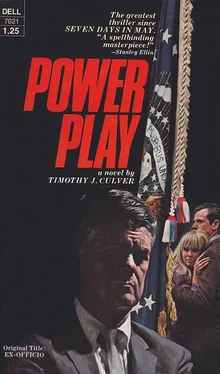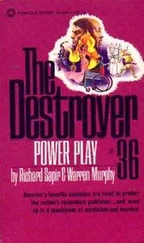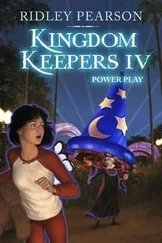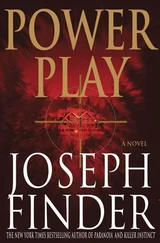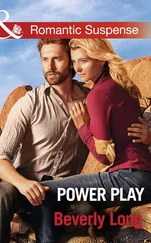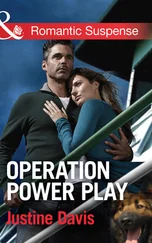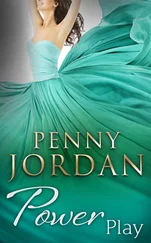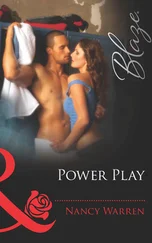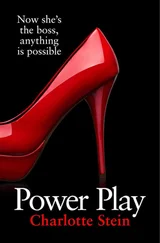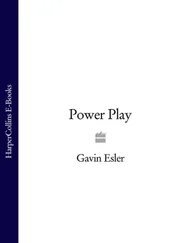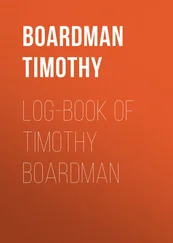Timothy Culver - Power Play
Здесь есть возможность читать онлайн «Timothy Culver - Power Play» весь текст электронной книги совершенно бесплатно (целиком полную версию без сокращений). В некоторых случаях можно слушать аудио, скачать через торрент в формате fb2 и присутствует краткое содержание. Город: New York, Год выпуска: 1971, ISBN: 1971, Издательство: Dell Books, Жанр: roman, на английском языке. Описание произведения, (предисловие) а так же отзывы посетителей доступны на портале библиотеки ЛибКат.
- Название:Power Play
- Автор:
- Издательство:Dell Books
- Жанр:
- Год:1971
- Город:New York
- ISBN:978-0440070214
- Рейтинг книги:5 / 5. Голосов: 1
-
Избранное:Добавить в избранное
- Отзывы:
-
Ваша оценка:
- 100
- 1
- 2
- 3
- 4
- 5
Power Play: краткое содержание, описание и аннотация
Предлагаем к чтению аннотацию, описание, краткое содержание или предисловие (зависит от того, что написал сам автор книги «Power Play»). Если вы не нашли необходимую информацию о книге — напишите в комментариях, мы постараемся отыскать её.
Occupation: Former President of the United States
Problem: Obsessive desire for power.
Loved and hated more than any man on earth, commanding absolute loyalty from the men and women who once had served him, defying the government he once had headed, Bradford Lockridge pursued his final and possibly insane vision of glory...
Power Play — читать онлайн бесплатно полную книгу (весь текст) целиком
Ниже представлен текст книги, разбитый по страницам. Система сохранения места последней прочитанной страницы, позволяет с удобством читать онлайн бесплатно книгу «Power Play», без необходимости каждый раз заново искать на чём Вы остановились. Поставьте закладку, и сможете в любой момент перейти на страницу, на которой закончили чтение.
Интервал:
Закладка:
Wellington, four cars back, had seen the accident unclearly, but he knew about it. Though he had nothing so obvious as a hearing aid in his ear, a small tinny voice was speaking in it, describing the accident in fast monosyllables. This was a second line of defense, about which the family knew nothing, a thin line of men, sprinkled along the sides of the triangle, in communication with Wellington and with one another: professionals, ready to step in if needed.
Wellington, into the transmitter: “One.” That was Meredith Fanshaw, in the second car beside Bradford. “Cover.”
Fanshaw leaned forward in the seat, saying, “Interruptions?” That was the word he was to use in giving the others Wellington’s instruction to cover.
At once, the four men around Bradford were all leaning forward, moving back and forth, pointing this way and that, discussing the reason for having stopped, so surrounding Bradford with gestures and bodies and talk that he couldn’t possibly see or hear anything that was going on outside.
Ten seconds had passed since the accident. A green Chevrolet was passing the stopped cortege on the left. Wellington said, “Two. Shield.”
The doors of the third car, behind Bradford’s, opened, and out spilled the four young men who had been tailing him all day. Robert Pratt and the spectacled, balding-at-twenty-eight-but-handball-enthusiast young banker, Albert Bloor Jr., trotted forward to stand on the left side of Bradford’s car. George Holt and twenty-one-year-old Thomas Wellington hurried to stand on the right.
The green Chevrolet stopped beside Bradford’s car, arriving at the same time as Robert Pratt and Albert Bloor Jr. The Chevrolet’s right-side doors opened, and three young men climbed out, one from the front, two from the back, leaving the driver. At the same time, the two young men from the Mercury began to move down from the flower car on the other side.
Robert held one of the young men against the side of the Chevrolet, so he wouldn’t be able to roll with it, and hit him three times in the face. Meanwhile, Albert was holding the other two off with weaving jabs.
Across the car, George Holt and Thomas Wellington stepped forward to greet the pair from the Mercury.
Wellington, into the transmitter: “Four.” Walter and William Wellington. “Return. Block green Chewy.”
Bradford, trying to see past everyone, said, “What’s going on out there?” Vague confused movement, that’s all he could see.
Gregory, purposely misunderstanding as they all crowded even closer to Bradford, “Some sort of accident. I sure hope it doesn’t hold us up long.” Everyone else agreed, at length.
In Wellington’s car, John Bloor said, “I better get up there with them.” He got out of the car, and trotted forward.
The young man Robert had held against the car was now on the ground. Robert and Albert Jr. were struggling with the other two, no one able to get an advantage in the narrow space between the Chevrolet and Bradford’s car. On the other side, Thomas Wellington had one of the young men from the Mercury down and was straddling him and hitting him. The other one from the Mercury had George Holt down, but George was refusing to let go, and the two were rolling on the pavement. Thirty seconds had passed since the accident.
Wellington moved his lips, but didn’t seem to speak. What he had said, subvocally, was, “Give me some siren.”
A siren wailed, sounding a few blocks away.
The driver of the Chevrolet began to honk his horn, either for the others to hurry the job or to give it up. William and Walter Wellington came driving back, and angled across the street to block the Chevrolet, whose driver kept on honking while starting to back away, trying to avoid being blocked.
Wellington was sub-vocally giving a description of the Chevrolet.
Thomas Wellington had knocked out his opponent, and was now scrambling over to help George Holt.
John Bloor arrived to help Robert and his cousin Albert, attacking the two from the Chevrolet at a different angle.
George’s opponent leaped to his feet, fought off Thomas Wellington, and ran.
There was practically no traffic in this residential neighborhood at noontime of a weekday; they had the area virtually to themselves.
The two conscious young men from the Chevrolet broke and ran, trying to get back into their car, which was still moving in reverse down the street, trying to keep the Wellington brothers from maneuvering it into a cul-de-sac.
Wellington: “Four. Let them go.”
The Chevrolet, no longer being blocked, leaped forward and made a screeching turn at the next corner. Three of the attackers departed on foot. Two were unconscious on the pavement.
Wellington: “Two. Get the Mercury out of the way.”
Thomas Wellington, Robert Pratt, both Bloors and George Holt trotted up to the flower car. The Mercury had dented its side panel, and punctured its own radiator, but that seemed to be about all the damage. Robert got behind the wheel, shifted into neutral, and steered while the others pushed the car back into the side street and left it at the curb.
The young man Robert had knocked out got dazedly to his feet. Greg Holt looked levelly at him from the window of Bradford’s car. The young man looked around, and went trotting uncertainly away.
In the lead car, Sterling was opening and closing his fists on his knees. “To do this to Elizabeth,” he kept saying. “To do this to Elizabeth.” His two brothers-in-law and their wives looked at him in helpless compassion.
Wellington: “Four. Back to your post, one block ahead.”
The Wellington brothers’ car made a U-turn and sped away.
John Bloor was running back toward car number four. His cousin and Robert and the other two were already climbing back into the third car, where Evelyn anxiously began to ask them if everybody was all right, while looking exclusively at Robert. Fifty-five seconds had passed since the accident.
The hearse began to move. The flower car followed. The seven cars with the mourners came in their wake. The final young man was sitting up in the street, rubbing his head and looking after the procession. He got to his feet, very unsteady, and walked away, going half a block before a blue Buick pulled to a stop near him and two cold-looking men got out and took him by the arms. “Hey!” he said. “What are you grabbing me for? What did I do?”
They didn’t answer him. They put him in the car and took him to a small old brick building downtown, where they led him to a room already containing the driver of the Chevrolet and two of the other four attackers. They kept him there two or three minutes, and then took him away by himself to a fairly large men’s room. There were four of them, and one of him. They stood around looking at him, and one of them soaked a white terrycloth towel in a sink full of water, then squeezed some of the water out. Holding the wet towel, he said, “Before I ask you the questions, I want to explain why you should give me the answers.” And then he began to hit the young man with the towel.
iii
The four young men in the maroon-and-black Pontiac were silent until one of them said “We’ve still got to get Lockridge.”
“Without any of them getting us.”
“Naturally.”
“I don’t care what you say,” said a third, “they were ready for us. They were out of their car before Joey even had the Chevy stopped.”
“So they know our plans,” said the first. “We can change them. We don’t have to make the try at the cemetery.”
“Fine,” said the fourth. “But what do we do instead?”
“They’ll go back to the house. We’ll wait for him there.”
“Then what?”
“The house is right on the river. We find ourselves a motorboat, we take Lockridge out the back door, into the motorboat, across the river.”
Читать дальшеИнтервал:
Закладка:
Похожие книги на «Power Play»
Представляем Вашему вниманию похожие книги на «Power Play» списком для выбора. Мы отобрали схожую по названию и смыслу литературу в надежде предоставить читателям больше вариантов отыскать новые, интересные, ещё непрочитанные произведения.
Обсуждение, отзывы о книге «Power Play» и просто собственные мнения читателей. Оставьте ваши комментарии, напишите, что Вы думаете о произведении, его смысле или главных героях. Укажите что конкретно понравилось, а что нет, и почему Вы так считаете.
